Resources
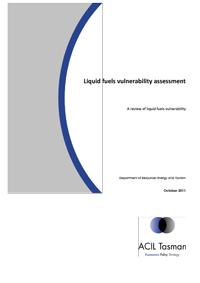 ,
, 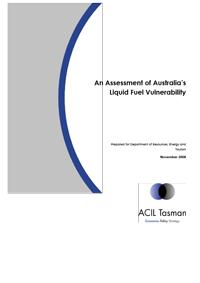
Date
Description
In 2009 and 2011, ACIL Tasman was engaged by the Federal Department of Resources, Energy and Tourism (DRET) to examine Australia's current level of liquid fuel vulnerability and significant trends which may affect this over the short, medium and longer term. The Liquid Fuel Vulnerability…Date
Description
Petroleum is a complex mixture of organic liquids called crude oil and natural gas, which occurs naturally in the ground and was formed millions of years ago. Crude oil varies from oilfield to oilfield in colour and composition, from a pale yellow low viscosity liquid to heavy black 'treacle'…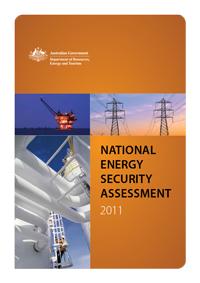 ,
, 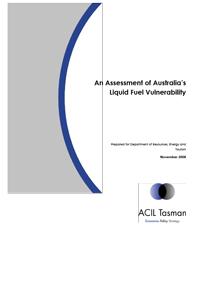
Date
Description
The NESA identifies the current strategic energy security issues in the liquid fuels, natural gas and electricity sectors, and those posing a potential risk in short term, medium term and longer term. The Government has indicated that the NESA will provide a key input into the development of future…Date
Description
All fuel users need to analyse and understand their own fuel use and to consider how best to manage the potential impacts of reduced fuel supply Many larger fuel users only hold limited stocks on the expectation that stocks will be held by fuel suppliers, or indeed governments will intervene…Date
Description
Australia has robust emergency response plans and arrangements Industry and governments fully recognise the potential impacts of a severe national shortage of fuel supplies to business and consumers. Australia has robust response plans for managing a national liquid fuel emergency, which…Date
Description
Subsidising domestic alternative fuel production is not necessary for energy security The reliable supply of conventional transport fuels (petrol, diesel and jet fuel) to the Australian market is underpinned by a diversity of supply options for petroleum products from domestic refiners and…Date
Description
Australia’s import, terminal and storage capacity for transport fuel has increased over time to meet growth in fuel demand There has been significant investment in new and expanded storage and terminal facilities over recent years to meet demand growth in key regional centres, as evidenced in…Date
Description
The Federal Government has introduced regulation of the quality of petrol and diesel fuel in Australia. The principal drivers of the fuel quality regulation are environmental. The adoption of emerging vehicle engine and emission control technologies is a key strategy in the management of ambient…Date
Description
Through submissions to review processes, AIP aims to inform the community about the downstream petroleum industry, and its significance to the national economy, by making available comprehensive factual information and data about the industry and its performance over time. AIP material also…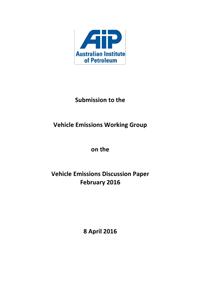
Date
Description
Through submissions to review processes, AIP aims to inform the community about the downstream petroleum industry, and its significance to the national economy, by making available comprehensive factual information and data about the industry and its performance over time. AIP material also…